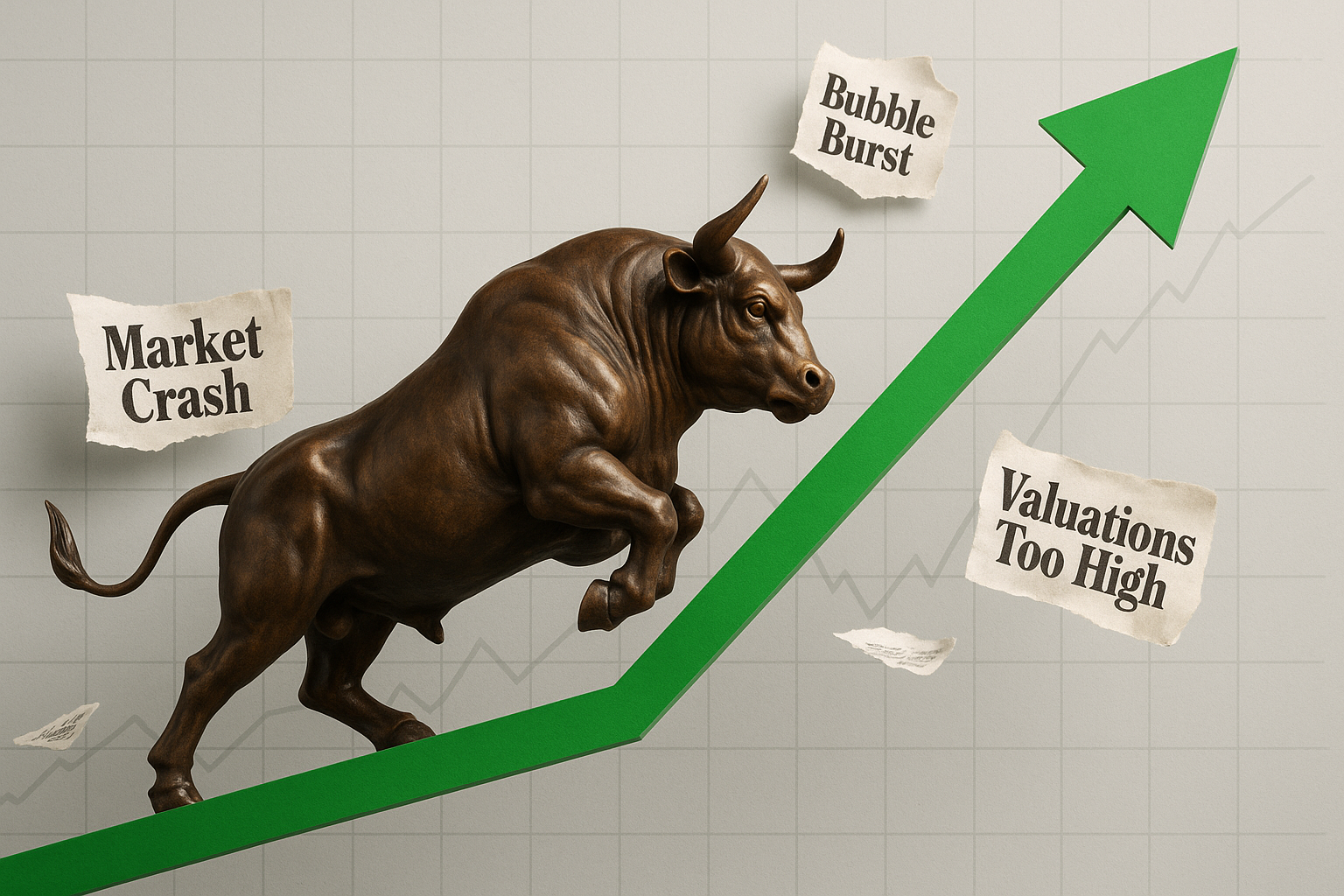Every few months—like some financial journalism groundhog day—the market prophets emerge to declare the end is nigh. Valuations stretched beyond reason! Bull market on borrowed time! The bubble's about to burst with spectacular consequences!
And yet... here we are.
A wealth management chart landed on my desk last week showing where this bull market stands historically. I've seen these comparisons for years now, but this one struck me. That little green dot representing our current run? Not even close to record territory. Not. Even. Close.
Look, I get the psychology. I've covered markets long enough to recognize the pattern. Predicting disaster carries this deliciously asymmetric payoff—be wrong and nobody remembers six months later; be right and you're the next Michael Burry, forever able to claim prophetic financial wisdom. It's why CNBC trots out a new "Big Short" candidate with alarming regularity.
The reality? Much more boring.
Markets have always climbed a wall of worry. That's their nature. What makes this particular climb interesting (at least to market nerds like me) is the sheer height and texture of that wall: pandemic, inflation spiraling to four-decade highs, actual land war in Europe, banking mini-crises, and interest rate hikes that were absolutely, positively going to break something fundamental.
They occasionally did break things. And yet.
I've found one mental model particularly useful in explaining what we're witnessing. I call it the "Apocalypse Discount." Markets constantly price in some probability of disaster scenarios—and during periods when those scenarios fade, valuations expand accordingly. What looks like irrational exuberance might just be the normalization of risk premiums as various doomsday scenarios fail to materialize.
When you look at that historical bull market chart (and I've stared at it longer than I care to admit), our current run is downright unremarkable. The 1990s tech boom makes today's market look positively bashful. The post-2008 recovery? Longer and steeper before hitting serious turbulence.
Does this mean markets only go up? Of course not. That would be absurd.
Corrections happen. Bear markets happen. Catastrophes happen. But predicting their timing with precision remains the financial equivalent of alchemy—despite what that newsletter in your inbox claims with absolute certainty.
(I should note here that political risk—the one truly concerning factor mentioned in the analysis—is substantial. No argument there. But even on this front, history suggests markets have weathered political chaos before. They've survived world wars, assassinations, constitutional crises, and governments grinding to complete halts.)
I'm not arguing for complacency. Risk management matters. Diversification matters. Your asset allocation should reflect your personal situation rather than market timing hunches.
But making investment decisions because you believe a bull market has simply "gone on too long" fundamentally misunderstands market mechanics. Bull markets don't die from old age—they die from external shocks, policy mistakes, or fundamental economic deterioration. The date on the calendar tells you precisely zilch about how much runway remains.
So the next time—and there will absolutely be a next time, probably within weeks—you see headlines screaming about "the top" or whatever metaphor happens to be trending... take a breath. We've been here before. Many, many times. The apocalypse trade has been a spectacular money-loser for the past century.
Meanwhile, that little green dot keeps inching up and right—until someday it won't. And when that happens, it won't be because some arbitrary milestone was reached or because too many folks felt optimistic. It'll be because something fundamental shifted in the economic landscape.
Until then? The crash predictions will get increasingly specific and increasingly wrong. And this stubborn bull market will continue refusing to die on schedule—much to the frustration of those positioning for its demise since Obama's second term.
Which, when you think about it, is exactly how markets are supposed to work.
